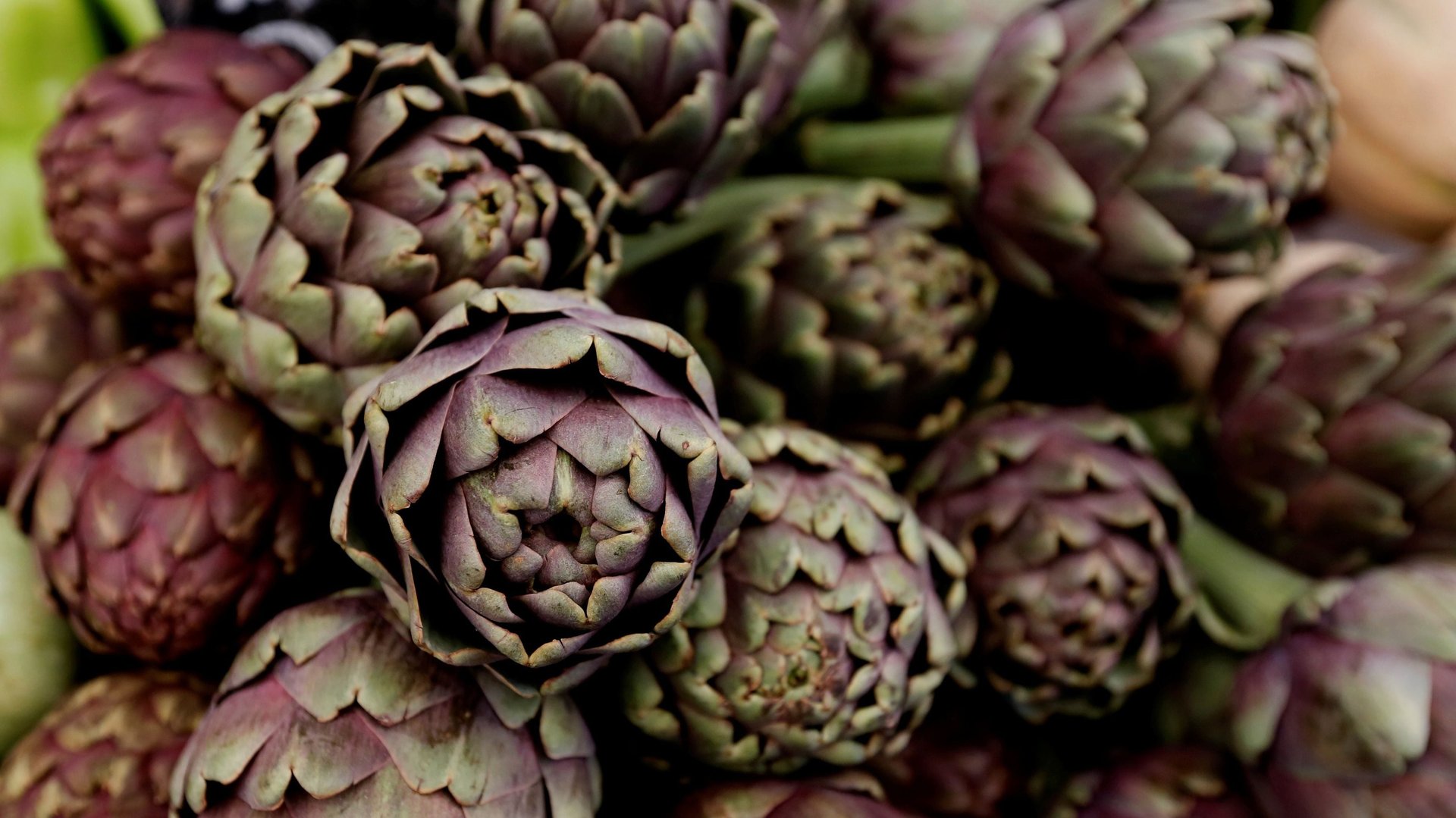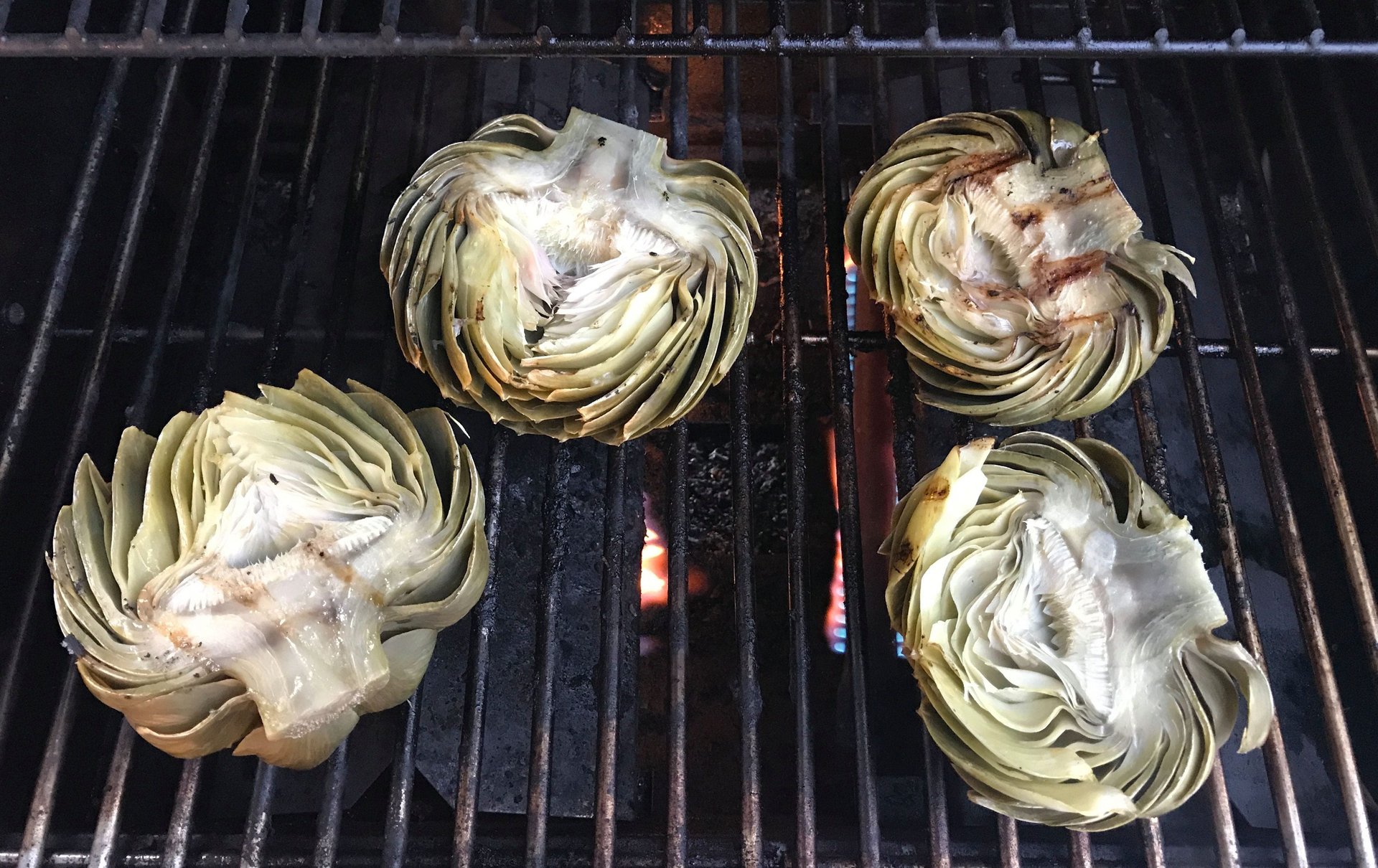Artichokes are the vegetarian lobster—but are they kosher?
Artichokes, to my mind, are a nearly perfect food.


Artichokes, to my mind, are a nearly perfect food.
Recently, my boyfriend and I had friends over for dinner, and in preparation I made a scorched rice dish, a salad of roasted carrots with avocado, cilantro, and cumin, and grilled a rack of lamb. All of those dishes were good—impressive, even—but they were laughably eclipsed by a giant pair of farmer’s market artichokes that my boyfriend halved, boiled, and finished on the grill. Ignoring everything else, we tore off the sweet, meaty leaves, dipped them into a shared bowl dish of melted butter with lemon and sea salt, and scraped them clean with our teeth.
One of our guests, his fingers dripping with lemony butter, declared the artichokes “vegetarian lobster.” He wasn’t wrong. The table was dotted with drips of butter, and we filled a bowl with the carnage of our discarded leaves. The artichokes were easily the most decadent—if the simplest—dish on the table.
But were they kosher?
Last year, we would have answered: of course they were! Some of the world’s most famous artichoke recipes come from Rome’s Jewish quarter, where they are traditionally fried, and then fried again, in a crispy, salty, heavenly dish known as carciofo alla giudia, or Jewish-style artichokes. But now, a so-called “artichoke war” over the kosher status of the cardoons is raging across Italy and Israel, according to reporting in The New York Times, Haaretz, and Il Messaggero.
This all began when Israel’s chief rabbis declared that whole artichokes, like those fried, packaged, and imported into Israel as carciofo alla giudia, cannot be properly cleaned to ensure they’re free of worms and parasites, and are therefore not kosher. But restaurants in Rome’s Jewish ghetto continue to serve fried artichokes. Umberto Pavoncello, the owner of Nonna Betta—one of the city’s most famous destinations for the dish—speculated to The New York Times that the Israeli rabbi who made the decision was perhaps not as “illuminated” as the rabbis in Rome. One restaurant with branches in both Rome and Milan was divided by city. The Romans kept the artichokes; the Milanese sided with Israel and pulled it from the menu.
The Israeli rabbis are not the first to cast shame upon the artichoke, the flower bud of a Mediterranean thistle. The Roman philosopher Pliny called them “the earth’s monstrosities, those which even the animals instinctively avoid.” But as far as I’m concerned, as long as they’re fresh at the farmer’s market, it’d be sacrilege not to eat them.
Here’s how I’m preparing mine. The first step is slicing them down the center, which would theoretically reveal any pests—but I’ve never seen one.
Recipe: “Vegetarian lobster” (serves 4)

Slice two fresh globe artichokes—ideally from the farmer’s market, with a bit of a stem—down the center (give them a little shake or a knock on the cutting board if you like) and plunge them into a pot of rapidly boiling water with the juice of one lemon. Boil the artichokes for about 15 minutes and prepare the grill for medium heat. Remove the artichokes, drizzle them with some olive oil, and place them on the grill, flat side down. After four minutes, flip them, and cook for another four minutes. Remove artichokes from the grill and serve them with a bowl of melted butter, lemon juice, and sea salt to taste, plus an empty bowl for discarded leaves. (To eat: Pluck off the leaves, dip in the butter, and scrape off the meat with your teeth. When you’re done, remove the hairy part of the choke and enjoy the heart.)